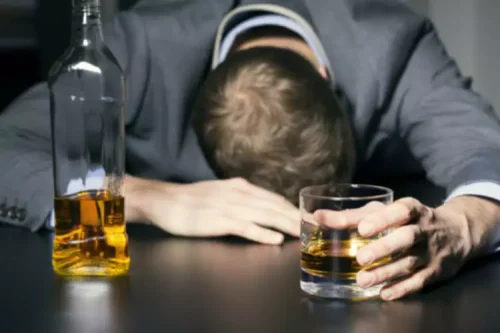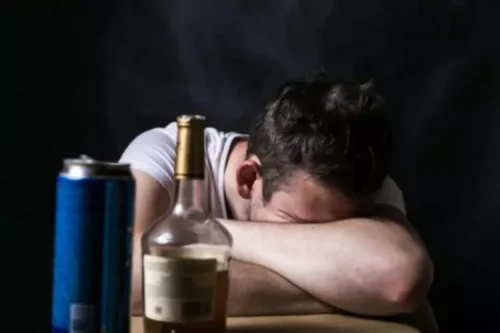
People who exhibit symptoms of this illness are sometimes mistakenly believed to be about to relapse and start drinking again. When impulsivity is combined with grandiosity, attention-seeking behavior accelerates to warp speed. Warped expectations that characterize virtually every alcoholic and drug addict feed this impulsiveness. Years of alcohol and drug abuse almost mold it into addiction’s nature.
Are you covered for insurance treatment? Find out now.

We can help you learn more about intensive, holistic treatment programs that treat a person’s addiction on a physical, emotional, and behavioral level. Recognizing that you may be experiencing dry drunk syndrome or protracted withdrawal is the first step toward getting help. Once you’ve identified that this may be what you are experiencing, you can reach out for help from your healthcare provider, support groups, 12-step facilitation therapy, and your loved ones. Connecting with people who can help support you in establishing new healthy coping skills can help you progress through protracted withdrawal. If you are sober but not receiving treatment, you may be at risk of replacing your alcohol addiction with a different addiction. This is due to not dealing with the underlying issue that led you to start drinking in the first place.
- Old patterns of thinking and behavior, such as minimizing, rationalizing, or denying problems, can resurface, undermining recovery efforts.
- If you or a loved one is experiencing dry drunk syndrome, it does not mean there is a relapse about to occur.
- It is the continued work after treatment that makes all the difference.
- Mental relapse7 is when a person starts to minimize the consequences of their previous alcohol use, craves drugs or alcohol, and thinks about the settings and people related to their past use.
- Having a co-occurring disorder can exacerbate each diagnosis and make it harder to treat.
Is Dry Drunk Syndrome a Sign of Relapse?
While sobriety is a crucial first step toward recovery, it’s not the only one. Facing and dealing with emotional or psychological issues that led to substance abuse in the first place is a cruital step toward recovery. The dry drunk syndrome can have a negative impact on the process of giving up drinking both physically and mentally. Remember, recovery is a drug addiction journey, and seeking support along the way can make all the difference in overcoming dry drunk syndrome. To effectively address dry drunk syndrome, you can benefit from an outpatient program at one of our recovery centers in Sarasota, Venice, or Port Charlotte. Our outpatient programs offer flexibility, allowing you to maintain work or family commitments while receiving treatment.
We Level Up Treatment Centers
Dry Drunk Syndrome can bring back a pessimistic outlook, making it difficult to see the positive aspects of your recovery journey. Feelings of isolation, loneliness, and even boredom can also be prevalent. Old patterns of thinking and behavior, such as minimizing, rationalizing, or denying problems, can resurface, undermining recovery efforts. As recovery progresses, the initial high of overcoming addiction may give way to feelings of unfulfillment, especially if expectations were unrealistic.

This provides hope that individuals can overcome this challenge with peer support, redirection, and therapeutic treatment. If you notice a loved one struggling in their early sobriety and exhibiting signs of dry drunk syndrome, the best plan of action is to encourage them to continue treatment. Loved ones must remember that they have no control over the alcoholic’s behavior, feelings, and demeanor. High expectations for a “new life” can contribute to dry drunk syndrome. Alcoholics dealing with dry drunk syndrome feel overwhelmed by their reality for the first time since getting sober.

Overcoming Dry Drunk Syndrome: Reclaiming Your Recovery Journey
Consider exploring activities such as exercise, art, music, or volunteering. These outlets can provide a sense of purpose and fulfillment that may be lacking in your life. Coping with cravings for alcohol may involve identifying triggers, developing alternative coping strategies, and seeking support from peers or professionals. Now that you’re no longer drinking, you have a chance to embrace your sober life and redefine your passions. Collaborating with esteemed organizations like Epiphany Wellness and Ocean Recovery, Amanda has produced valuable and enlightening content that empowers individuals on their path to recovery. Her work with these organizations exemplifies her exceptional expertise and unwavering commitment to providing accurate and reliable information to those seeking assistance.
- However, true recovery involves a deeper exploration of the issues that led to your substance abuse in the first place.
- When impulsivity is combined with grandiosity, attention-seeking behavior accelerates to warp speed.
- Learning the symptoms of dry drunk syndrome as well as a few strategies to better cope can help you or someone you love to move past this stumbling block toward lasting recovery.
- Comprehensive addiction recovery programs may include individual therapy, therapy, medication-assisted treatment, and 12-step programs.
- Journaling or discussing your feelings with a therapist or support group can help you find emotional support.
- Recognizing a return to old thought patterns and behaviors, or a lack of progress in recovery, is crucial.
- The first step in dealing with dry drunk syndrome is the same as it was for quitting alcohol.
- However, sobriety and abstinence from alcohol are only part of recovery when someone struggles with an alcohol use disorder (AUD).
- In fact, their relationship might even be worse, because the person is now acting more depressed or agitated due to the lack of their addictive outlet.
- For example, at Boardwalk Recovery Center, we focus on healing the whole person and work to assist clients in analyzing the behaviors and attitudes they displayed prior to sobriety.
If you experience dry drunk syndrome, you must proactively take steps to overcome it. It is a misconception that when an addicted person or alcoholic stops using and enters sobriety, they will be completely restored from old patterns of harmful behavior. When an individual enters treatment for a drug or alcohol addiction, the immediate goal is to stop drinking or using drugs. But to do so, individuals must fix and change old habits and relationships. While detoxing from alcohol is part of the process, addressing the issues that led to addiction requires much deeper work.
Speak with someone who understands
- Alcohol use disorder includes conditions that are referred to as alcohol abuse, alcohol dependence(not to be confused with alcohol intolerance), alcohol addiction, and alcoholism.
- We can inform you about this condition by giving you relevant information.
- Finally, engaging in healthier activities such as exercise, mindfulness practices, or creative hobbies can help to reduce stress and improve overall mental wellness.
The chemical name ethanol sometimes refers to alcohol, dry drunk syndrome a depressant drug active ingredient in drinks such as beer, wine, and distilled spirits (hard liquor). Recognizing these symptoms is crucial, as they can hinder your recovery process and increase the risk of returning to alcohol use. You may find yourself reminiscing about the “good times” you had while drinking, which can lead to cravings and potential relapse. Take up gardening, start collecting an item you’re truly interested in or fascinated by, learn how to build things and focus on the creative project. The goal is to fill the time you once spent drinking with activities that are enjoyable and engrossing. A person dealing with side effects of PAWS actually may look like he’s intoxicated even though he’s been totally abstinent (which explains where the term “dry drunk” may come from).
